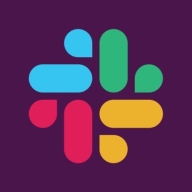

Slack Business - Enterprise and Microsoft Teams compete in the enterprise communication tools category, with Teams potentially having the upper hand due to its robust integration within the Microsoft ecosystem and superior video conferencing capabilities, appealing more to larger teams.
Features: Slack Business - Enterprise provides an intuitive communication platform with seamless integration, including focused group channels, efficient document sharing, and interactive bots. Microsoft Teams stands out with its robust document management, integration with Microsoft Office, and superior video conferencing features.
Room for Improvement: Slack needs improvements in video chat, integration with broader enterprise tools, and customization features. Microsoft Teams needs to improve resource consumption, integration with non-Microsoft systems, and enhance calendar functionality and performance with large datasets.
Ease of Deployment and Customer Service: Both Slack and Microsoft Teams offer versatile deployment options. Slack's setup is generally straightforward due to comprehensive documentation, whereas Teams benefits from integration with Microsoft Office but may require additional training due to resource demands. Customer service is rated highly for both.
Pricing and ROI: Slack appeals to smaller teams with its free tier though scaling can be costly. Microsoft Teams offers value through Office 365 bundling, often considered economical despite potential extra costs for additional features. Both significantly enhance productivity, with user satisfaction varying based on specific needs.
Microsoft support is excellent, offering instantaneous assistance through either robo support or live personnel.
We have cases where it took more than six months to resolve very basic issues.
I have logged tickets for Office 365 and received responses within 24 hours, depending on the severity.
We tend to focus more on Workato for support, but internally we raise service requests with the infrastructure team for any issues related to Slack.
Microsoft Teams is a scalable solution.
Microsoft Teams is scalable, and I have successfully conducted sessions with close to forty people without significant issues.
Slack is endlessly scalable.
Slack is not as comprehensive as Microsoft Teams in terms of scheduling and hosting meetings.
A user who engages with Slack daily and utilizes various features would provide more valuable insights.
I appreciate the ability of Microsoft Teams to control the quality of the call.
Microsoft Teams is stable once the setup is completed properly.
For stability in Microsoft Teams, I would rate it a five.
It integrates with various systems, allowing us to manage site reliability, availability, and reliability.
Slack's stability is a perfect 10.
Occasionally, Slack behaves unexpectedly and shuts down, which can be irritating, especially when I am in the middle of a task.
AI capabilities should be integrated into Microsoft Teams to provide better transcript services and offer multiple language support.
The biggest issue with Microsoft Teams is switching identities, especially when communicating with external organizations.
Microsoft Teams could be improved through more synchronization with other platforms like Calendly and Gmail.
We can also improve the creation of channels, particularly in terms of privacy, security, flexibility, and the addition of members to newly created channels.
Configuring chats and pinning in Teams is easier, even though Slack has these features, they are not intuitive enough to engage with.
There is a need to add a call group feature to facilitate scheduling and conducting meetings within Slack.
Microsoft Teams is economical when purchased as part of an Office 365 bundle.
Microsoft Teams comes with Office 365 licenses like E3, but there are options for those who prefer not to pay for Teams by using alternative products like Slack.
Regarding the license, the Microsoft 365 license I am taking is quite expensive, and every year it goes higher.
Teams offers the ability to record sessions and store them in OneDrive, which provides 1 terabyte of space.
The platform is user-friendly and has positively impacted our communication, allowing us to communicate with people from different countries and cities in real time.
The biggest advantage of Microsoft Teams is that it is a combined package where I can do chat, video conferencing, work on spreadsheets, documents, and other things with many people sitting at my desk, which makes work easy, especially with clients who are in remote locations, so it saves a lot of time.
In my experience, Slack is a stable product for communication, and I appreciate its automation features and integration of AI capabilities for enhancing specific functions.
In managing releases via Slack channels, one major advantage over Teams is the ability to have threaded discussions, which helps in catching up on relevant discussions without the distraction of interleaved conversations.
The integration with Google Calendar is easy to use and allows us to receive notifications before meetings.
| Product | Market Share (%) |
|---|---|
| Microsoft Teams | 14.0% |
| Slack Business - Enterprise | 15.8% |
| Other | 70.2% |


| Company Size | Count |
|---|---|
| Small Business | 64 |
| Midsize Enterprise | 43 |
| Large Enterprise | 67 |
| Company Size | Count |
|---|---|
| Small Business | 54 |
| Midsize Enterprise | 13 |
| Large Enterprise | 21 |
At Microsoft, our mission is to empower every person and every organization on the planet to achieve more. Our mission is grounded in both the world in which we live and the future we strive to create. Today, we live in a mobile-first, cloud-first world, and the transformation we are driving across our businesses is designed to enable Microsoft and our customers to thrive in this world.
We do business in 170 countries and are made up of 114,000 passionate employees dedicated to fulfilling our mission of helping you and your organization achieve more.
Slack Business - Enterprise facilitates team communication and collaboration with integration capabilities and a user-friendly interface, supporting mobile and web platforms. It enhances productivity through efficient organization, instant communication, and extensive customization options.
Designed for seamless integration with apps and services, Slack Business - Enterprise provides efficient organization through channels and threads, instant communication, file sharing, and video calls. Productivity is boosted via notifications, reminders, bots, and automation. Customization enhances the user experience, promoting collaboration. However, improvement areas include video chat, meeting functions, and third-party tool integration. Users prioritize enhanced UI, security, and document collaboration, alongside better scalability, stability, and attachment browsing capabilities.
What are the key features of Slack Business - Enterprise?Slack Business - Enterprise is widely used across various industries, serving as a communication hub within organizations. Its features support internal and external communication, project management, and workflow optimization. Industries benefit from its integration with Google Drive and Zoom, enabling efficient collaboration and streamlined operations.
We monitor all Enterprise Social Software reviews to prevent fraudulent reviews and keep review quality high. We do not post reviews by company employees or direct competitors. We validate each review for authenticity via cross-reference with LinkedIn, and personal follow-up with the reviewer when necessary.